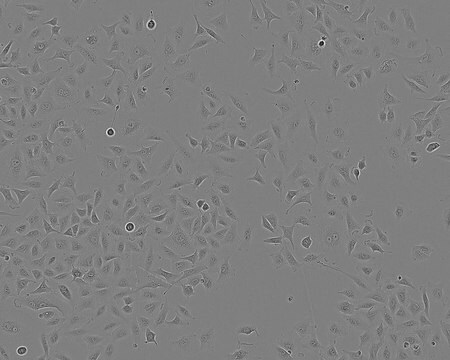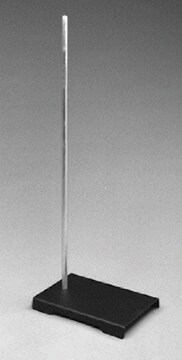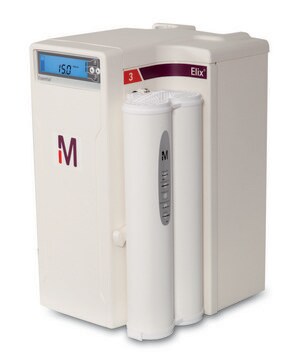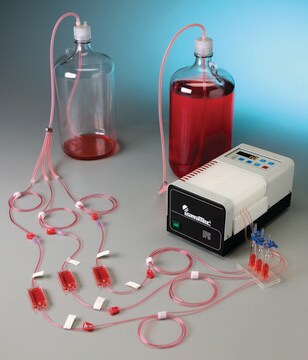Recommended Products
product name
VP267, 05092805
biological source
human breast
growth mode
Adherent
karyotype
Mean no. 82, modal no. 62, range 45-148
morphology
Epithelial
products
Not specified
receptors
Not specified
technique(s)
cell culture | mammalian: suitable
relevant disease(s)
cancer
shipped in
dry ice
storage temp.
−196°C
Cell Line Origin
Human Breast Cancer
Cell Line Description
Derived from a breast cancer biopsy removed from a 48 year-old female. The histology of the breast cancer biopsy was defined as Ductal Grade III, tumour cells did not stain positive for oestrogen receptors. The VP267 cell line was derived from the same individual as the cell line VP229. VP229 was derived from the primary tumour and VP267 was derived 14 months later from a local recurrence of the tumour. The individual was recorded to live for 1year after surgery performed to remove the tumour. The patient had received tamoxifen treatment. This cell line grows slowly and is relatively difficult to culture; please read the sub-culture routine information closely.
DNA Profile
STR-PCR Data: Amelogenin: X
CSF1PO: 10
D13S317: 11,13
D16S539: 11,12
D5S818: 11
D7S820: 10,12
THO1: 7
TPOX: 8
vWA: 17
CSF1PO: 10
D13S317: 11,13
D16S539: 11,12
D5S818: 11
D7S820: 10,12
THO1: 7
TPOX: 8
vWA: 17
Culture Medium
MEBM (Clonetics, CC-3151) + MEGM SingleQuots (Clonetics, CC-4136) + 2mM Glutamine + 2% Foetal Bovine Serum (FBS). Fresh EGF (final concentration of 10ng/ml) should be added to the medium at each subculture.
Subculture Routine
Split sub-confluent cultures (70-80%) 1:2 i.e. seeding at 2-5x10,000 cells/cm2 using 0.25% trypsin; 5% CO2; 37°C. The VP series of breast cancer cell lines are very slow growing and relatively difficult to grow. Fresh EGF (final concentration 10ng/ml) s
Other Notes
Additional freight & handling charges may be applicable for Asia-Pacific shipments. Please check with your local Customer Service representative for more information.
Certificates of Analysis (COA)
Search for Certificates of Analysis (COA) by entering the products Lot/Batch Number. Lot and Batch Numbers can be found on a product’s label following the words ‘Lot’ or ‘Batch’.
Already Own This Product?
Find documentation for the products that you have recently purchased in the Document Library.
Our team of scientists has experience in all areas of research including Life Science, Material Science, Chemical Synthesis, Chromatography, Analytical and many others.
Contact Technical Service






